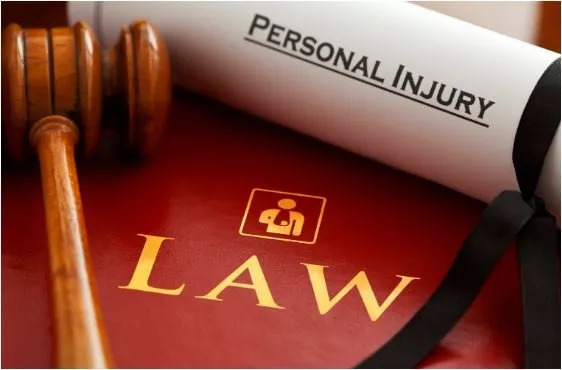Many of us are aware that, unfortunately, life isn’t always as straightforward as we would like. Relationships and family matters can be complicated and there may come a time when you need professional help to resolve a family matter.
A solicitor who specialises in issues such as divorce, separation or child custody works in the area known as family law. They provide many services to help couples and families resolve disputes and will work to come to a solution that’s in their client’s best interests. If you’ve been struggling with a family law issue and want to know more about the services available and how they can help, read on for our handy guide.
What do we mean by ‘family law’?
Family law refers to the branch of law which regulates family relationships, including marriage and divorce, child custody and financial matters such as alimony or child support. It also covers legal matters relating to adoption, custody, visitation rights and surrogacy.
The Family Law Act 1975 focuses on the rights of children and the responsibilities that each parent has towards their children, rather than on parental rights. This means that in cases where children are involved, the court and lawyers will act with the children’s best interests, regardless of what each parent might want.
Family law also includes specific services which can help with conflict resolution, such as mediation and constructive communication. We will discuss the most common services and areas covered by family law in more detail, below.
Family law services
As you can see, family law is a relatively wide branch of the legal system and it covers many different areas. Some people would prefer to handle matters themselves without involving legal parties, but unfortunately this isn’t always possible. If you think you might need a lawyer to help with a family issue, see below to find out more about some of the many services provided by family law solicitors.
Divorce
Divorce can be a stressful and confusing time, but the right legal support can help make the process clearer and more straightforward. A divorce lawyer can help at any stage of the process, including responding to divorce proceedings, reaching a financial settlement and making arrangements for any children involved.
A divorce solicitor will also work on your behalf to ensure you get the best outcome possible and they can communicate with your partner (or their lawyer) if you don’t want to communicate with them directly. They can also help explain your rights and what constitutes grounds for divorce, explain the legal processes and represent you if the case goes to court. Divorce proceedings can be lengthy (especially if one party is contesting the divorce) but a family law solicitor will be able to take care of all paperwork, saving you a lot of time and stress.
Cohabitation agreements
Many couples live together for years without getting married, but they may not realise that there’s no automatic legal protection if the relationship ends. It’s important to know where you stand, as you may have no right to your shared home if it’s in your partner’s name, regardless of how long you’ve lived there. It also means that any shared property which is jointly owned will be split 50:50, even if you contributed much more.
Family lawyers can help draw up a cohabitation agreement to give you peace of mind and protect your assets for the future. These are similar to prenuptial agreements and can cover everything from how bills will be split, to what share of the property each person owns.
Child custody
Child custody is the legal term given to guardianship of a child, in both the legal and physical sense. Parents can split custody in several ways depending on their circumstances, such as 50/50 physical custody of a child (where the children spend equal time at each parent’s residence) or one parent might be awarded sole custody and the other will have visitation rights.
Most parents share 50/50 legal custody regardless of living circumstances. This means that they have the equal right to make decisions regarding a child’s healthcare or education. Some couples prefer to sort out custody arrangements without involving court, but this can be tricky if you can’t come to an agreement. It’s also wise to use a solicitor to make your agreement legally binding.
A family law solicitor may also be able to offer or arrange mediation for you and your ex partner. This helps you decide the practical arrangements, such as where your children will live, when they will spend time with each parent, child maintenance payments and how much/types of other contact e.g phone calls.
Prenuptial agreements
Many people have property, savings or other assets which they accrued before marriage, so they may wish to sign a prenuptial agreement to ensure these are protected. A prenuptial agreement is a written contract signed by both parties before they get married, which sets out what will happen to each individual’s assets following death or divorce.
A family solicitor can help you draw up a prenuptial agreement and ensure the right protections are put in place. They understand that these contracts can be a sensitive matter, so will do everything they can to ensure assets are legally protected, without negatively impacting your relationship.
Child support
Child support (or child maintenance) are regular ongoing payments made by one parent to the other to help financially support their child. There are legal requirements for the minimum you should pay, depending on your income and how many children you have. Some parents may choose to pay more, but a family solicitor can help you come to a legally binding agreement.
The laws can also be quite complicated, so they can explain to you how the breakdown of payments works and how much you owe. A solicitor can also represent you in court if one parent is refusing or failing to pay child support.
Domestic abuse
Domestic abuse isn’t just physical, it can also be emotional, verbal, sexual or financial. No one deserves to be in a relationship where they feel intimidated or threatened, and a family solicitor can help you take the next steps. They can advise you of your options and work to put any necessary legal steps in place to protect you and your family. This includes things like a civil court order to tell an abuser to stop harassing you and your family and stay away from your home, or help with emergency or temporary accommodation.
You may also be entitled to legal aid if you’re a victim of domestic abuse, you can find out more on the government website.
Family Mediation
Family solicitors can arrange mediation to help you with child custody arrangements, but they can also offer mediation for couples thinking about divorce. If you’ve been having difficulty in your relationship but are unsure whether divorce is the answer, a family lawyer can arrange and preside over mediation proceedings. These provide a formal setting and help you air any grievances and try to reach a compromise.
Family law mediation isn’t the same as relationship counselling, but it can provide an invaluable space to discuss legal issues surrounding your relationship, such as who would have custody of the children and how you would split assets if you did get divorced. If you’re struggling to agree, a solicitor may be able to help you come to a compromise agreement that works for both parties.
If you’re looking for an experienced family law solicitor to help with any of the issues above, get in touch with the experts at Crystal Law Solicitors. Our team can offer legal help and advice with a number of family law issues, including divorce, cohabitation agreements, child custody, settlement agreements, domestic abuse and more.
We have experience in tackling cases up to the highest court, and have close links to third party experts to assist you in your case, including financial advisors, surveyors and counsellors. If you’re looking for an experienced professional who’s on your side, every step of the way, give us a call today









